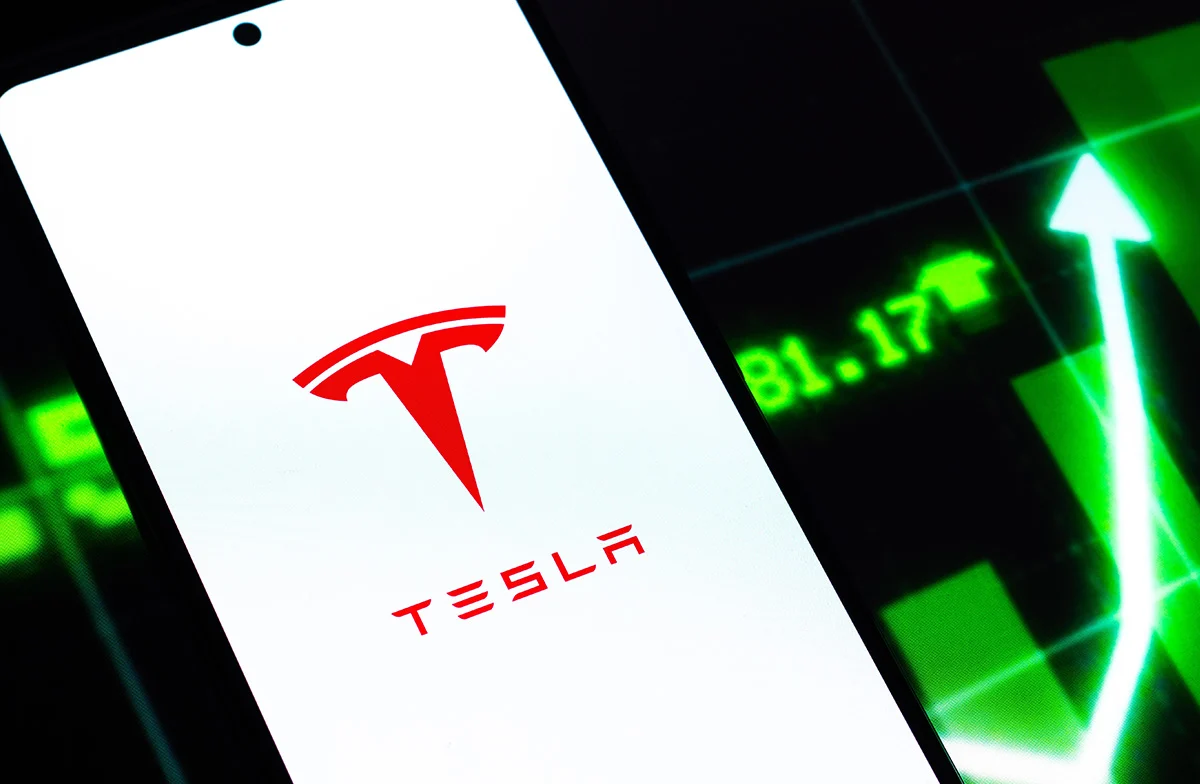TLDR
- Tesla’s Q3 profit missed Wall Street expectations at $0.50 EPS versus $0.54 expected, though revenue beat estimates at $28.01 billion
- Operating profit dropped 40% year-over-year to $1.624 billion, hurt by lower regulatory credit revenue and $400 million in tariff costs
- The company delivered a record 497,099 vehicles in Q3, surpassing estimates as buyers rushed to claim the federal EV tax credit before its September 30 expiration
- CEO Elon Musk announced plans to launch Robotaxi service without safety drivers in Austin by year-end, with expansion to 8-10 metro areas including Nevada, Florida, and Arizona
- Tesla shares fell nearly 4% in Frankfurt trading and were down 3% in US pre-market, with the stock down 10% year-to-date in Frankfurt
Tesla reported mixed third quarter results on Wednesday evening that sent shares lower in early trading. The company posted revenue of $28.01 billion, beating the $26.27 billion analysts expected. But earnings per share came in at $0.50, missing the $0.54 estimate.
Operating profit took a hit, falling 40% from a year ago to $1.624 billion. The culprit? Lower regulatory credit revenue and mounting tariff expenses that reached $400 million for the quarter.
Despite the profit miss, Tesla delivered some wins. The company moved a record 497,099 vehicles in Q3, crushing estimates of 439,800 units. That’s a new quarterly record and a jump from the 462,890 units delivered last year.
But here’s the thing everyone’s talking about: most of those sales happened before September 30. That’s when the federal EV tax credit expired, potentially pulling future demand into Q3 as buyers rushed to claim the benefit.
Tesla deployed 12.5 gigawatt-hours of energy storage products, another quarterly record. Revenue came in 12% higher than the $25.18 billion reported in Q3 2024.
Shares fell nearly 4% in Frankfurt trading Thursday morning and were down about 3% in US pre-market. The stock is down 10% year-to-date in Frankfurt compared to an 8.7% gain in New York.
Tariffs Keep Biting
The company’s tariff bill jumped from $300 million in Q2 to $400 million in Q3. Auto sector tariffs of 25% on imported cars and parts remain in place.
Tesla acknowledged the challenge in its earnings release. “It is difficult to measure the impacts of shifting global trade and fiscal policies on the automotive and energy supply chains, our cost structure and demand for durable goods and related services,” the company stated.
The tariff situation comes as President Trump’s trade policies continue creating uncertainty for domestic automakers. Tesla isn’t immune to these pressures despite its domestic manufacturing capacity.
To address affordability concerns, Tesla introduced stripped-down versions of its Model Y and Model 3 in early October. The “standard” variants feature rear-wheel drive, smaller batteries, less powerful motors, and fewer comfort features. They’re priced at $39,990 and $36,990 respectively.
Robotaxi Timeline Gets Specific
CEO Elon Musk gave investors concrete updates on the Robotaxi program during the earnings call. “We are expecting to have no safety drivers in large parts of Austin by the end of this year,” Musk said.
He added that Tesla aims to test Robotaxis in 8 to 10 metro areas by year-end. Nevada, Florida, and Arizona are on the list.
Tesla launched its first Robotaxi test in Austin over the summer and expanded the service area weeks later. Safety drivers currently remain in each vehicle. The company also runs ride-hailing tests in the San Francisco Bay Area with human drivers.
Wedbush analyst Dan Ives sees huge potential. “We continue to strongly believe the most important chapter in Tesla’s growth story is now beginning with the AI era now here,” Ives wrote. He maintains a $600 price target and estimates autonomous technology could add $1 trillion to Tesla’s valuation.
Musk warned after Q2 earnings that Tesla faced “a few rough quarters” following the tax credit expiration. The Q4 results will show if that prediction holds true.
Tesla shareholders have another big date coming: a November 6 meeting to vote on Musk’s $1 trillion pay package. Independent proxy advisers Glass Lewis and ISS both recommended rejection of the proposal.





